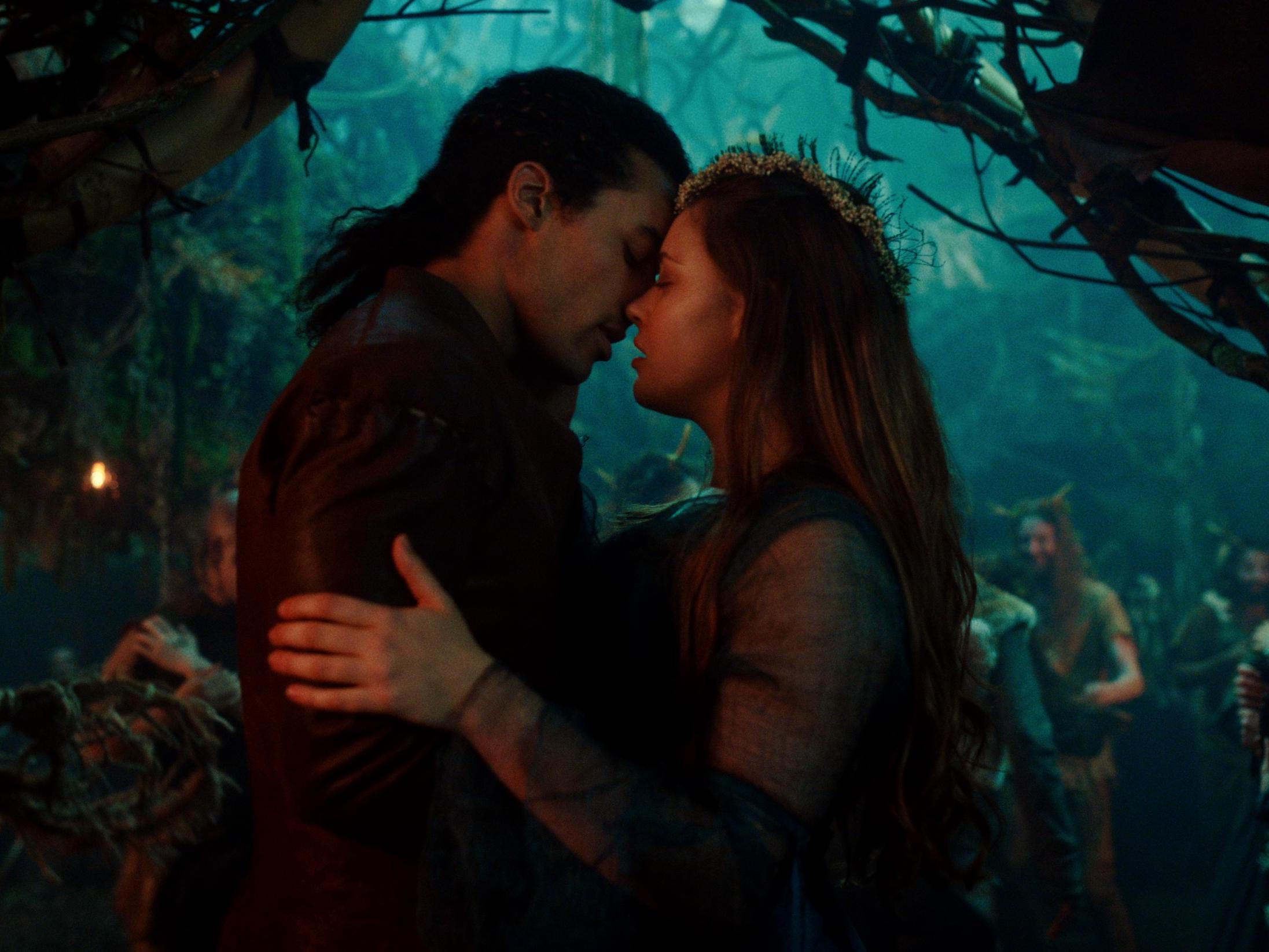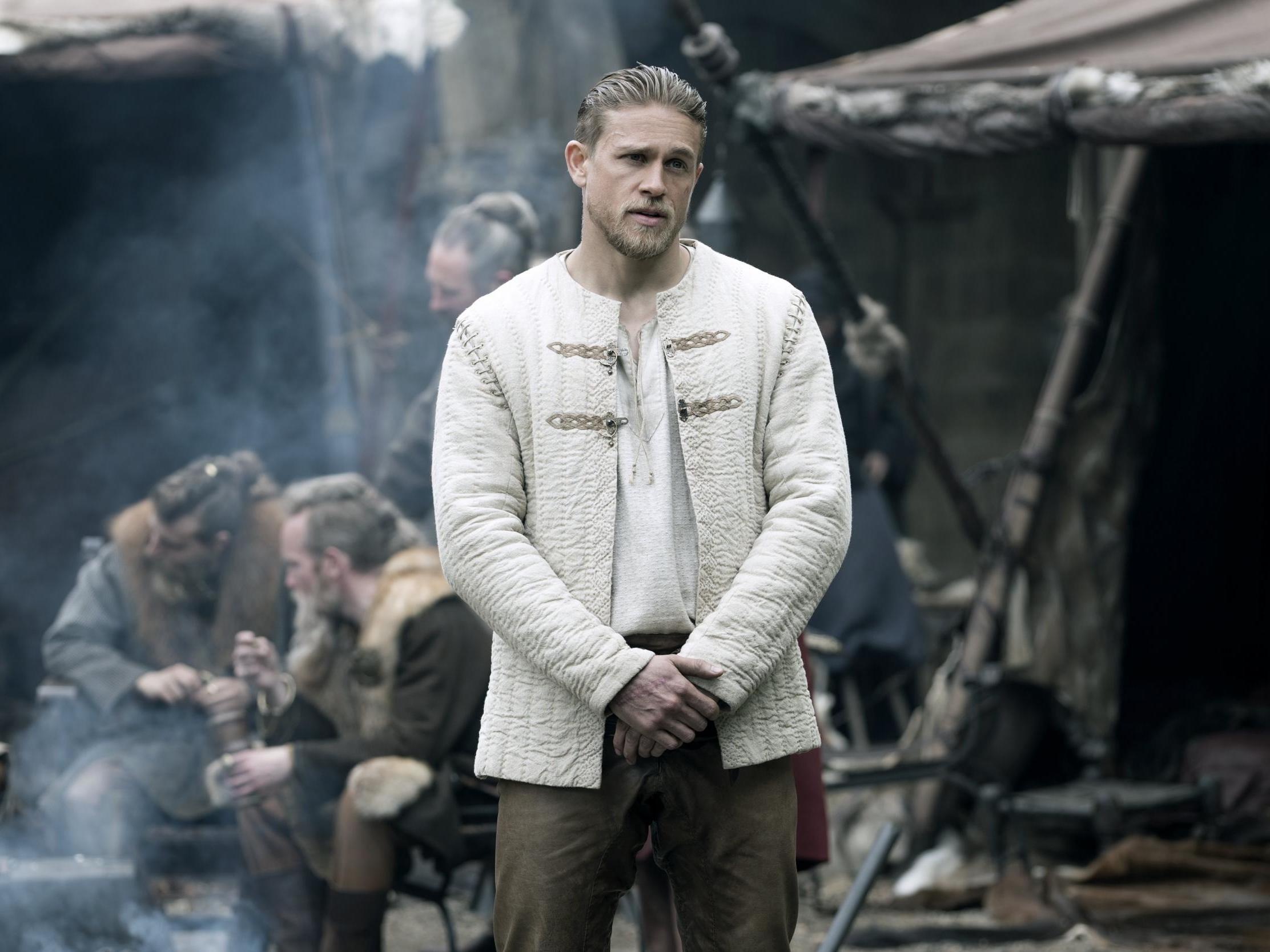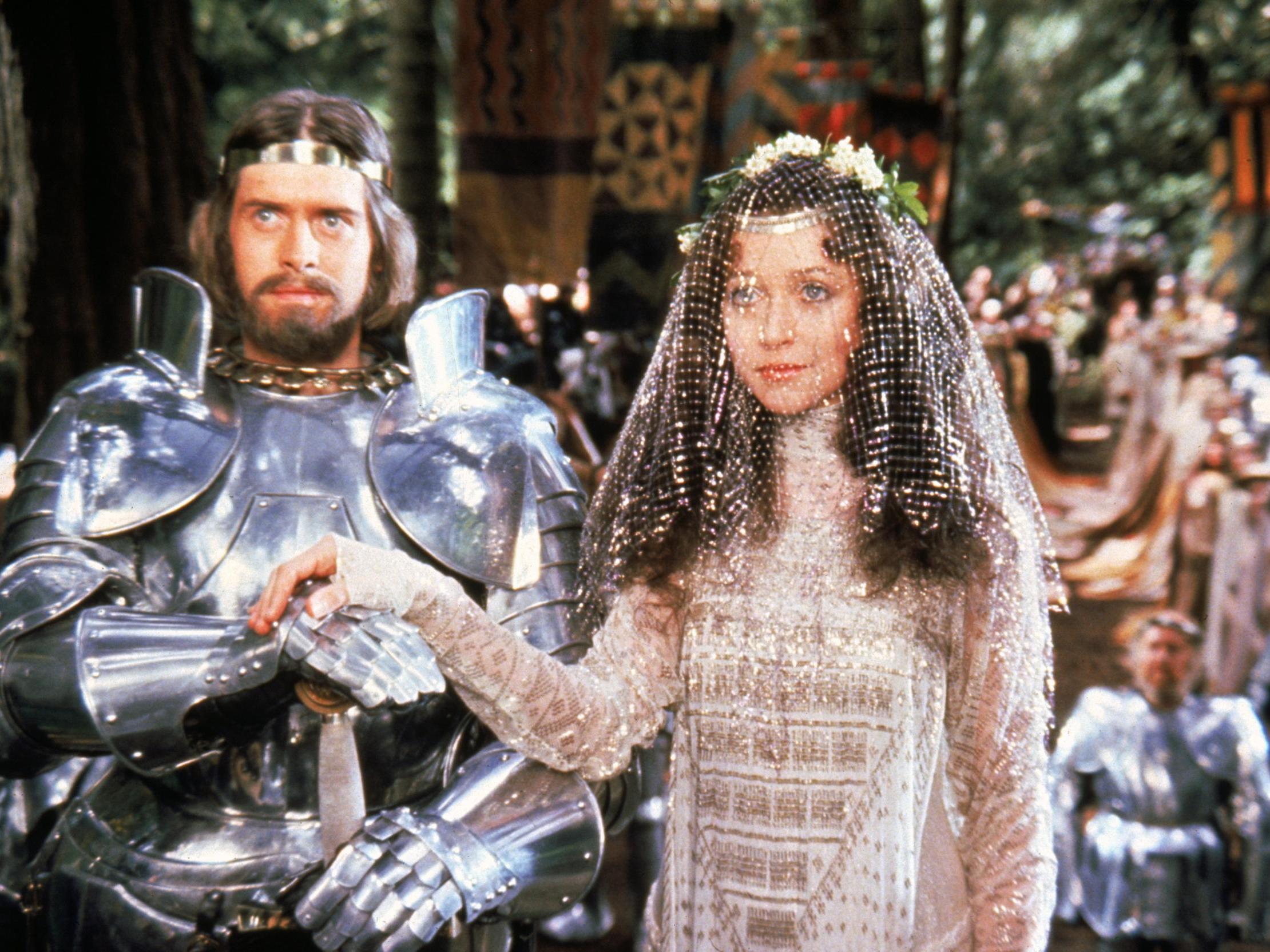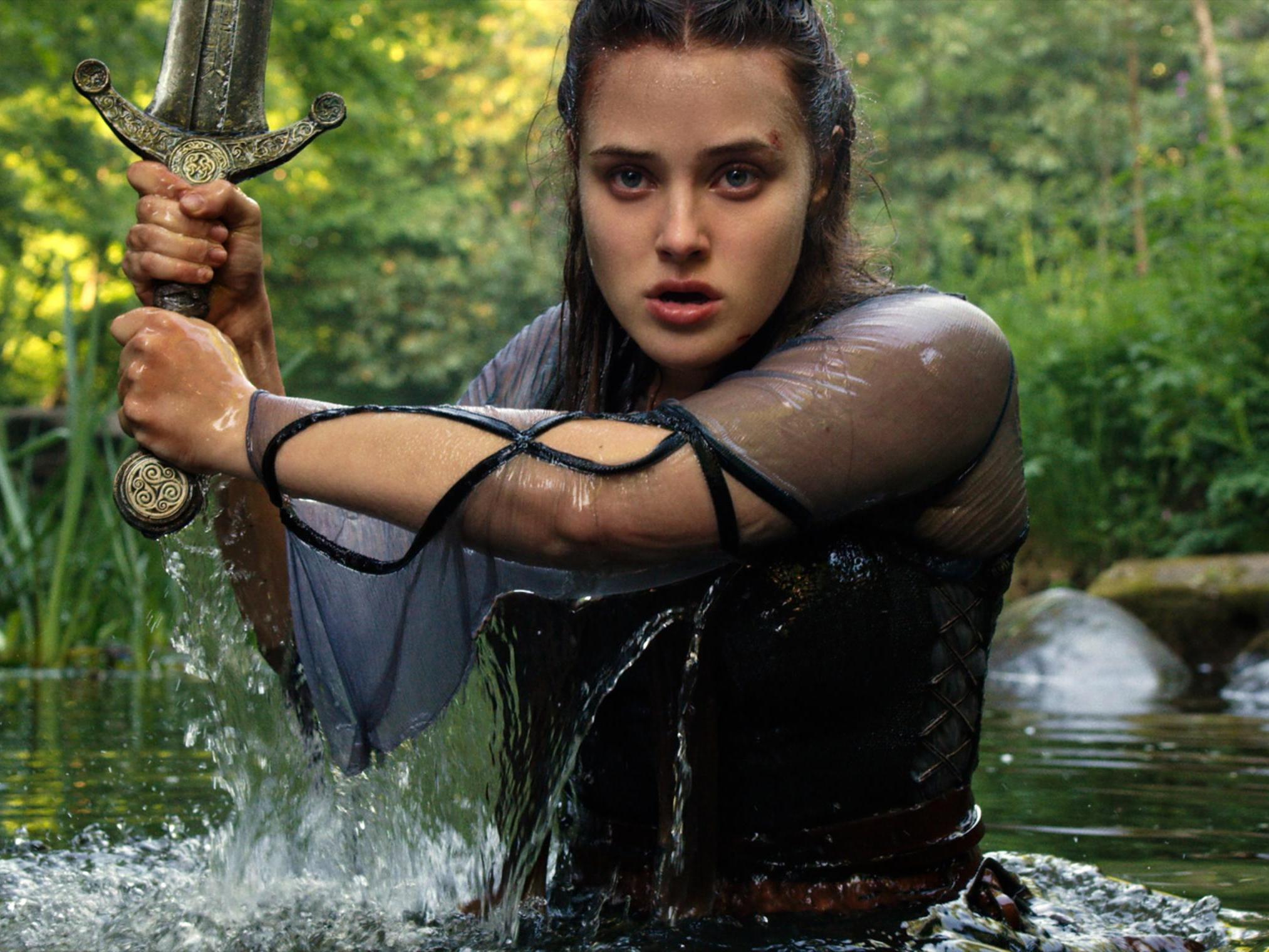There is a knight that never goes out: Why is Hollywood so obsessed with King Arthur?
Netflix’s new medieval series ‘Cursed’ is the latest in a long line of mixed-quality Arthurian adaptations. Ed Power investigates why filmmakers keep returning to Camelot

A sword, a stone, a bearded man with the fate of a nation on his shoulders. Centuries before Star Wars or the Marvel Cinematic Universe, the legend of King Arthur was the fantastical saga to rule them all. But recent attempts to reboot the tale of Arthur and Camelot have nosedived faster than a fully-laden African swallow in a hurricane. Is the Round Table too square for modern audiences?
Hollywood, of course, has never been particularly quick to take a hint. Which may explain why Netflix is about to charge in screaming its lungs out with another Arthurian retelling. Cursed, adapted from Frank Miller and Tom Wheeler’s 2019 YA novel, offers a more enlightened gender-swapped tilt at the mythology. Here, the magical blade Excalibur is entrusted to teenage girl Nimue (Katherine Langford from 13 Reasons Why), who is destined to become the fabled Lady in the Lake of Arthurian lore.
The book is a cult hit and Netflix is upbeat about the series’ prospects. But is such confidence justified? In 2017, Guy Ritchie’s shameless attempt to turn the Knights of the Round Table into once and future kingpins at the box office fell apart with the humiliating failure of £120m clunker Arthur: Legend of the Sword. And just last year, another YA tilt at the Arthurian Crown, Joe Cornish’sThe Kid Who Would Be King, grossed a mere £32m on a £47m budget. When it comes to Arthur, is it time the entertainment industry called it a night?
“There’s no question that the public remains fascinated by King Arthur, but I don’t think everyone is interested in the same thing,” says Michael Livingston, a professor of medieval literature at the Citadel, The Military College of South Carolina and historical fantasy author. “Some want the big, mythic drama. Some want the Disney banners and castles. Some want the clash of sword and steel. Some want the grim history behind the invention. What makes the apple ripe for one group of fans might make it rotten for another.”
The fact that Arthur is in the public domain is another big plus, he says. “The source material is both famous and free. That’s a tempting apple. And, sure, the other attempts to pluck it have failed but maybe if this time it had more sex or more grit or more … well, right or wrong, Hollywood thinks it’s easy pickings.”

To its credit, Cursed features a charismatic performance from Langford as the plucky Nimue. Sadly, it also suffers spectacularly rickety production values, so that medieval Britain looks as if it was shot on the same rural backlot where they make Emmerdale. That said, the pacing is peppy and there is no denying the long-overdue novelty of watching a fearless young woman heft Excalibur.
“A feminist retelling of the Arthurian myth,” is how Miller – author of such landmark graphic novels as Batman: The Dark Knight Returns – characterised Cursed in an interview with comic book website Previewsworld last year. “The appeal of the legend does have it all,” he added. “That’s why it’s been the source of so many versions. It can be told in terms of politics, magic, war, romance. It also features great villains and great heroism.”
If Miller is suggesting that each generation gets the Arthur it deserves, he is surely correct. This month marks the 25th anniversary of the Sean Connery-Richard Gere two-hander First Knight. If it is remembered today it is for Gere’s extraordinary shoulder-length hair, which materialises in medieval Britain straight from a mid-Nineties shampoo ad.
Jerry Zucker, coming to the film from the success of 1990’s Ghost, framed the ancient tale as a very contemporary love triangle. Gere’s Lancelot strikes up a flirtatious relationship with Julia Ormond’s Guinevere, as she is en route to get married to the grandfatherly Arthur (Connery).

Watch Apple TV+ free for 7 day
New subscribers only. £9.99/mo. after free trial. Plan auto-renews until cancelled.
ADVERTISEMENT. If you sign up to this service we will earn commission. This revenue helps to fund journalism across The Independent.

Watch Apple TV+ free for 7 day
New subscribers only. £9.99/mo. after free trial. Plan auto-renews until cancelled.
ADVERTISEMENT. If you sign up to this service we will earn commission. This revenue helps to fund journalism across The Independent.
First Knight isn’t awful. Connery was arguably born to play Arthur. Chariots of Fire star Ben Cross, for his part, puts in a commanding turn as good knight-turned-bad Malagant. However, the movie is very Nineties in its cheesiness. Gere, in particular, wafts around as if he’s participating in a guest spot on a sitcom. Whenever he and Ormond are on screen together he sizes her up like Joey from Friends eying a fresh romantic prospect.
In its tone, First Knight could not be further removed from the idealistic Sixties vision of Arthur as immortalised in Camelot, the musical (and later movie) that brought solace to John F Kennedy through the darkest days of his presidency. After his assassination, one of the images that would stay with First Lady Jacqueline was of her husband putting on the soundtrack to Alan J Lerner and Frederick Loewe’s 1960 Broadway hit.
“At night before we’d go to sleep, Jack liked to play some records; and the song he loved the most came at the end of this record,” she told Life magazine. “The lines he loved to hear were: ‘Don’t let it be forgot, that once there was a spot, for one brief shining moment that was known as Camelot’.”
As the idealistic Sixties gave way to the murk and cynicism of the Seventies, however, audiences got a more appropriate King Arthur. Monty Python and the Holy Grail (1975) is obviously a comedy in the first instance. And yet director Terry Jones – later to embark on a second career as a respected medieval scholar – was a serious student of the Middle Ages, too. Amid the clopping coconuts and riddles about African and European swallows, The Holy Grail captured the dark and stormy essence of Arthurian myth. “It wasn’t that we were sending up medieval epics,” Jones later commented. “We loved medieval epics.”
But if there was one blinding bright moment for Arthurian movies – a Camelot among Camelots – it is surely John Boorman’s 1981 tour de force Excalibur. His take works because he looks beyond the usual texts and instead draws inspiration from JRR Tolkien. Middle Earth is the conspicuous influence on Excalibur rather than Malory’s Le Morte d’Arthur or TH White’s Once and Future King (which, were it published today, would surely be condemned for its diatribes against the Celts, described by White’s Merlin as “a collection of monkeys throwing nuts at each other out of separate trees”).
“Tolkien’s work stirs a great brew of Norse, Celtic and Arthurian myth, the ‘Unterwelt’ of my own mind,” Boorman wrote in his 1985 memoir, Money Into Light. “It was a heady, impossible proposition. If filmmaking for me is, as I have often said, exploration, setting oneself impossible problems and failing to solve them, then the Rings saga qualifies on all counts.”

“What I’m doing is setting [Excalibur] in a world, a period, of the imagination. I’m trying to suggest a kind of Middle-Earth in Tolkien terms,” he told American Film magazine in 1981. Boorman went so far as to smear green gel over his camera filters in order to heighten the feverish sensibility. “I want it to have a primal clarity, a sense that things are happening for the first time. Lands and nature and human emotions are all fresh.”
That grand ambition is absent from later movies about Arthur. The most striking thing about First Knight is Gere’s American accent, with his wafting hair taking second place. For a paragon of chivalry, his Lancelot is also distinctly on the creepy side. Early on he distracts a bandit holding a knife to Guinevere by suggesting he and the brigand have their fun with her. It’s a ruse to catch the villain off guard – but, eh, does it have to be so sleazy?
Just as wrong-headed was Antoine Fuqua’s 2004 King Arthur (with a script by Gladiator writer David Franzoni). This set out to be the anti-Excalibur, with Fuqua prioritising historical accuracy. So Arthur (Clive Owen) is a glum Roman officer, Keira Knightley’s Guinevere and Stephan Dillane’s Merlin rebellious Celts streaked in face-paint.
Guy Ritchie’s Legend of the Sword, with an inexpressive Charlie Hunnam as Arthur and a grumpy Jude Law as the evil Vortigern, essentially wanted to be the multiplex’s answer to Game of Thrones. Richie even admitted as much. “Game of Thrones came up with their own voice, and they stuck to it,” he told Entertainment Weekly. “It was bold and identified. So it was me trying to find a version of that.”
“The success of Game of Thrones made the Arthurian apple seem bigger and juicier,” says Livingston. “At the same time, that success is a double-edged sword: the surge of “medieval” books, shows, movies, and video games that Game of Thrones left in its wake has compounded the difficulty of any one of them capturing an audience.”

“I think cinema-goers have been cool on Arthur recently because the movies simply haven’t been very good,” adds historical fiction author Steven A McKay. “Like the latest Robin Hood film, it all feels too modern and far away from the old stories which were fairly simple on the surface but had a great deal of depth and folklore running through them. It’s been dumbed down nowadays, like a lot of modern entertainment.”
Is all hope lost for a successful modern revisiting of Arthur? Perhaps not. Critically lauded independent studio A24 (Hereditary, Midsommar) is currently assessing a potential release date for The Green Knight, David Lowery’s hyper-surrealistic retelling of the story of Sir Gawain (Dev Patel) and his struggle against the mystical Green Night – described as a “gigantic green-skinned stranger”.
Lowery’s Green Knight will, judging by the trailer, share some of the gorgeous uncanniness of Boorman’s Excalibur. The same cannot be said for Cursed, which, in feel and execution, is more The Hunger Games: The Excalibur Years. Still, it’s an agreeable romp and Netflix is gung-ho about it. It is a reminder that, despite recent disappointments, the adventures of Arthur, Lancelot and the gang continue to cast a spell over the entertainment business. For Hollywood, the legend of Camelot remains a shining city on a hill.
Cursed is available on Netflix from Friday 17 July
Join our commenting forum
Join thought-provoking conversations, follow other Independent readers and see their replies
Comments
Bookmark popover
Removed from bookmarks